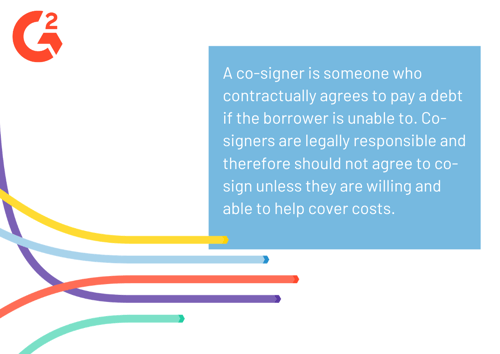The concept of “building credit” can feel kind of elusive.
Many people, unfortunately, don’t know what “credit” is until they need to prove they’ve been responsible with it. I know this was true for me, coming out of college and needing to find a place to live.
Landlords wanted to see I’d been good with my car payments, house payments, or credit cards: all things I didn’t have.
Factors that play into your credit score:
- Whether you pay debts on-time
- Age of your oldest credit line
- Credit used
- Number of recent inquiries into your credit
- New accounts
- Credit available relative to amount owed
Whether you’re coming to this article proactively, or you are finding yourself in the same place I was in, you’re in a good place to learn about credit and how to build it up over time.
How to build credit
Credit is used for a lot of things: buying a car, buying a house, and renting an apartment.. Credit is, essentially, proof that you pay your debt.
|
Your credit score is calculated using a number of factors:
- Whether you pay debts on-time
- Age of your oldest credit line
- Credit used
- Number of recent inquiries into your credit
- New accounts
- Credit available relative to amount owed
|
Those numbers combined will produce your credit score. This score can fluctuate depending on the balance on your credit cards, new loans, or closed accounts. Because of this it's always a good idea to track your credit score. Don't assume it's stayed the same!
|
Tip: Improve credit by paying bills on time. Pay bills on time by utilizing mobile banking.

|
What is a good credit score?
Now that you have your credit score, you might be wondering, what is a good credit score anyhow? Though there are a few different companies that track credit scores, they all tend to use the same scoring system.
Excellent credit: 761–850
Good credit: 701–760
Average credit: 621–700
Bad credit: 300–620 |
Having bad or average credit isn't necessary a bad thing, it just means that you might have a tougher time getting approval for loans. According to the latest statistics on bad credit, around 20% of Americans have a subprime score (580-669), and credit is often still accessible, albeit under less favorable terms. It's always beneficial to aim for a higher credit score, but remember that many companies will still work with you if your credit isn't stellar.
How to improve your credit score
The better your credit, the easier getting approval for loans, a house, or a car will be. If you want to increase your credit score, or just build credit from the ground up, take the following steps.
1. Apply for a secured credit card
A secured credit card is different from an unsecured credit card in one way: when you apply or sign up for a secured credit card, you give the bank a cash deposit. This is usually equivalent to your credit limit up-front.
So if you want a credit card that has a $500 limit, you give the bank that money in cash. Then, you go about using it like any other credit card: using it to make purchases or pay bills, and paying it off every month.
You accrue credit over time, and you get your deposit back at the account’s closing. Secured credit cards aren’t meant to be used over a lifetime; they’re a simple way to teach people how to be responsible with credit, as well as increase their credit score.
They're especially useful if you're teaching kids about managing their finances. For example, if you open a bank account for teens, you can also give them a secured credit card to learn how to manage credit.
2. Use a co-signer
So you need something right now, but you don’t have the credit to get you there? You can use a co-signer, or someone with good credit who puts their name on the dotted line alongside yours. A co-signer essentially vouches for you, and also is on the hook if you are unable to pay the full amount of the loan, lease, or credit card you’re applying for.

Because money is such a touchy subject, you should really only ask someone to cosign if you are positive you can afford whatever they’re helping you with or they’re someone to whom you are close enough that if you fail at making payments, they’ll be forgiving or allow you to pay them back over time.
3. Get a credit-builder or secured loan
Credit unions want you to be able to build credit over time, so they offer credit-builder loans and secured loans.
With a credit-builder loan, you borrow a certain amount from the bank, but they don’t release the money to you until you’ve paid it off. For example, say you borrow $1,000. On paper, you’ve been given that money on credit, but the bank is physically holding onto it. As you pay into the account, you accrue credit, and you’re also putting money away for yourself over time.
4. Get credit for rent, utilities, etc
The bills you pay are another way to accrue great credit. Find out if your rent payment service is tracked through a rent-reporting service. These services will inform credit bureaus of your habits. You’re already paying rent every month anyway (if you’re a renter), so why not have it count toward a positive credit score?
Not all bills will play into your credit score, and different credit bureaus have different standards. For example, Experian Boost will consider your utility bill payments, but other credit bureaus will not.
| Tip: If you’re trying to apply for a loan through a certain bank, ask in advance which credit bureau they use. Then, find out which of these factors they consider. |
5. Become an authorized user on a family member’s account
Do you have a family member who is good at paying off their credit cards? See if they’ll add you as an “authorized user” on their account. Essentially, this helps you share in their good credit habits.
If their bank reports this kind of behavior to credit bureaus, then they could help you build up your credit over time. You don’t even have to have access to the account or a card associated with the account; your name is simply listed in the details.
A word of warning: this is also only to be done with people you trust. If someone with poor credit puts your name on their account, you’re doing more harm to your credit score than good.
You get all the credit
Credit is, unfortunately, necessary for a lot of aspects of adult life. I can say that I personally would prefer to function without a credit card. But having it run in the background of my life and paying it off every month is just too easy a way to keep my credit in good health.
That’s the key though: all of these methods of accruing credit require being paid off or paid back. Credit cards aren’t free money, even if it does feel that way. So go forth, and use your newfound credit responsibly.
Want to learn how to build credit in your professional life? Read up on business credit.
 by Mary Clare Novak
by Mary Clare Novak
 by Grace Pinegar
by Grace Pinegar
 by Rob Browne
by Rob Browne